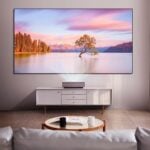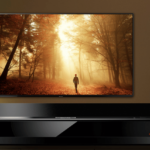kurt_fire
Stunt Coordinator
- Joined
- Dec 29, 2002
- Messages
- 183
my receiver can decode them both, which spr dvd should i buy, DTS or dolby digital? which one sounds better?
better frequency range than D.DA typical Dolby Digital 5.1 soundtrack (448kbps) has a greater frequency response than a typical DTS 5.1 soundtrack (754kbps).
Adam
Read Points 2a and 2b and you will see that DTS is actually better.*sigh*
I know that this has been done to death, but frequency response doesn't matter if the soundtrack is poorly mixed.
Which is "better" all depends on each individual DVD.
For example, you will be hard pressed to find any DTS mix anywhere that is better then the DD mix on the Attack of the Clones DVD.
OTOH, the DTS mix on Saving Private Ryan is still one of the best sounding DVDs out there.
Read Points 2a and 2b and you will see that DTS is actually better.DTS doesn't use joint-frequency coding at the two common DVD datarates (but does at lower rates), but its absolute frequency response is still less than that of Dolby Digital in the above example. Joint-frequency coding isn't the same as joint-stereo, so no-one should be able to detect its use.
754kbps DTS has a theoretical frequency response of 3Hz-19kHz, but the most common DTS encoder (CAE4) rolls off all frequencies above 15kHz.
Adam
Here's more fuel...and even more fuel.
http://www.dtsonline.com/dtsposition.pdf
http://www.dtsonline.com/dolbyrvu.pdf
I understand this is an arguement that will never be settled but I can tell you this from my own personal experience, in listening to both formats I've noticed many times compression artifacts simliar to what you get with mp3 encoding in DD content and have yet to experience this with dts so I'm going to personally side with the dts camp that is a better compression coded than DD. But thats me. In almost every movie I've purchased that has both soundtracks on it I have always prefered the DTS track over the DD track.
As far as data rates are concerned there is a little known codicil of information transmission theory which stipulates that any analog signal can be accurately reproduced in the digital domain if that signal is sampled at a rate two times the highest frequency present in that signal.That's not an original codocil of information transmission theory, it's the theory behind the Fourier Analysis. And it applies equally to digital sampling as to the analog signal processing it was developed for. And, yes, it says that it's questionable what you're doing if your sample rates go way above 44000/sec (assuming our ears cannot possibly hear above 22 kHz).
But it has nothing to do with compression theory, as Vince correctly states.
Cees
DTS: 96 khz, 24 bit, 108db dynamic rangeOn the vast majority of DTS DVDs, DTS is encoded at the same 48 khz and 16 bits as DD. Some of the earlier DTS releases (the so-called "full bitrate" discs) used 20 bit or 24 bit word lengths, but AFAIK none of them were encoded at 96 khz. And of course, all of this begs the question of whether those specifications translate into audible improvements in movie soundtracks that have been EQ'd and remixed to the point where the notion of "fidelity" is barely applicable.
As for the dynamic range figures, I'd be interested in your sources.
M.



